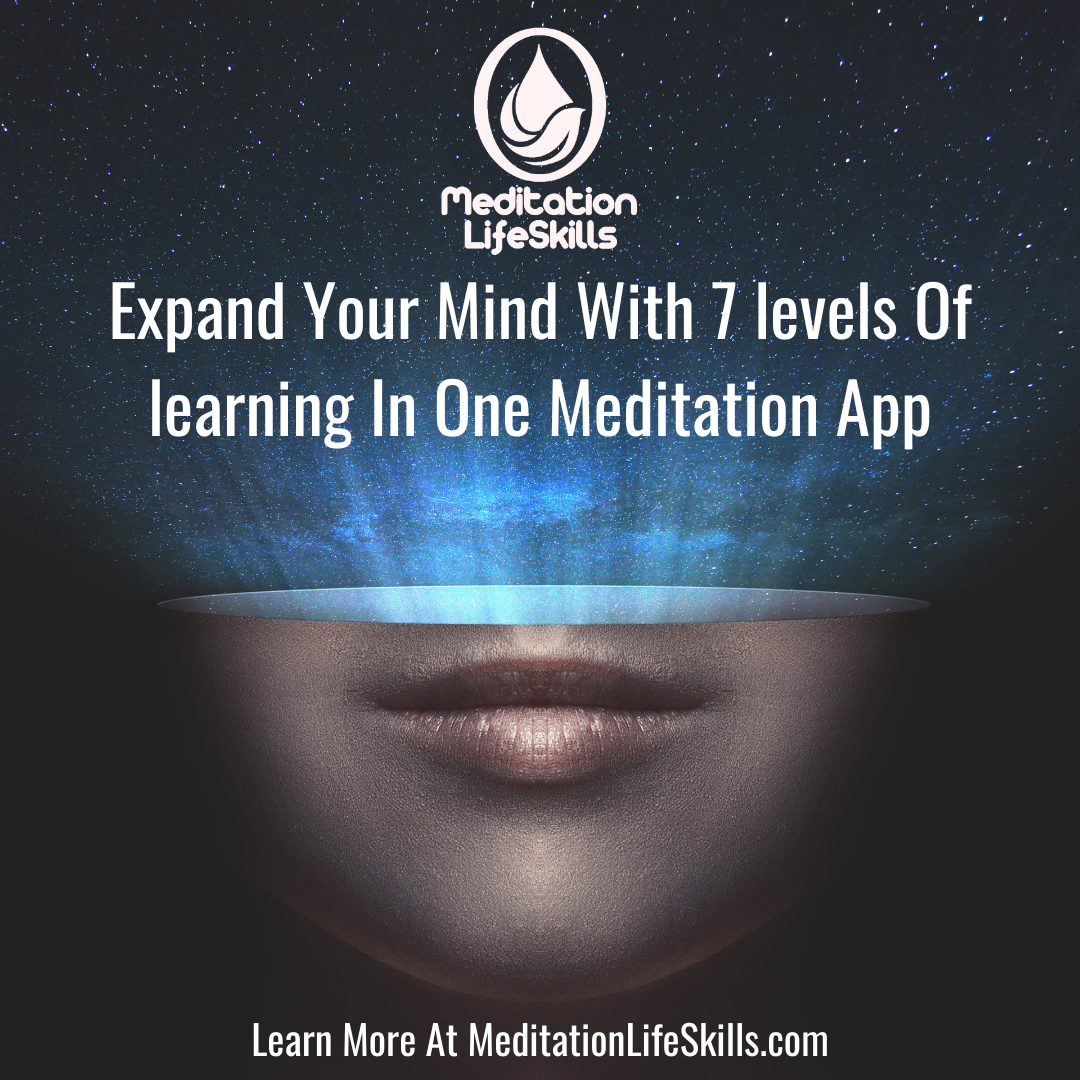
Welcome to the ultimate guide to finding your perfect meditation duration. Meditation is a powerful practice that profoundly benefits your mental and physical well-being. However, knowing how long you should meditate to reap these rewards can be challenging.
- In this comprehensive guide, we will explore the factors to consider when determining the ideal duration for your meditation sessions.
- We will delve into the science behind meditation and its effects on the brain and body.
- Also, we'll give you practical tips and techniques to help you set up a meditation routine that works for you.
Whether you are a beginner or an experienced meditator, this guide is here to support you in your mindfulness journey. Discover the optimal meditation duration that aligns with your goals, lifestyle, and personal preferences. Experience the tranquility, clarity, and serenity that meditation can bring to your life.
So, grab your meditation cushion or find a quiet spot, and let’s embark on a transformative journey of self-discovery and inner peace.
The Importance Of Finding The Proper Meditation Duration
Meditation is a practice that requires time and commitment. It is not a one-size-fits-all approach, and finding a suitable meditation duration is crucial for reaping the full benefits of this practice. Meditating for the appropriate amount of time allows you to enter a state of deep relaxation and heightened awareness.
The duration of your meditation session can affect the depth of your practice and the benefits you experience. Meditating for too short a period may not allow you to fully relax and enter a meditative state while meditating for too long can lead to restlessness and discomfort. By finding the right balance, you can maximize the positive impact of meditation on your mind, body, and soul.
To determine the perfect meditation duration for you, it is important to consider various factors, including your level of experience, goals, and lifestyle. Let's explore these factors in more detail.
Understanding Different Meditation Durations and Their Effects
Meditation is a versatile practice that can be adapted to fit different durations. Whether you have just a few minutes or an hour to spare, a meditation duration can suit your needs.
Let's look closely at some common meditation durations and their effects:
1. 5-10 minutes: Short meditation sessions are perfect for beginners or those with busy schedules. They offer the opportunity to calm the mind, reduce stress, and increase focus. These sessions can be easily incorporated into your daily routine, such as during a break at work or before starting your day.
2. 15-20 minutes: This duration allows a deeper dive into your meditation practice. It provides more time for relaxation and introspection, helping to enhance self-awareness and mindfulness. Longer sessions can also improve clarity of thought and increase emotional resilience.
3. 30-45 minutes: Longer meditation sessions offer a more profound experience, allowing you to explore the depths of your consciousness. With increased duration, you can enter a state of deep relaxation and achieve a heightened sense of tranquility and peace. These sessions are ideal for experienced meditators looking to deepen their practice.
4. 60 minutes or more: Advanced meditators often practice extended meditation sessions or during retreats. These marathon sessions can bring profound insights, spiritual growth, and a deep connection with oneself and the universe. However, they require a higher level of commitment and may only be suitable for some.
By understanding the effects of different meditation durations, you can choose the one that aligns with your goals and current circumstances.
However, it's important to remember that there is no right or wrong duration. It's about finding what works best for you.
Factors To Consider When Determining Your Ideal Meditation Duration
When determining your ideal meditation duration, it's essential to consider various factors that can influence your practice. By understanding these factors, you can make an informed decision and create a meditation routine that supports your overall well-being.
1. Experience level: Beginners may find it challenging to sit for long periods, both physically and mentally. It's essential to start with shorter durations and gradually increase them as you build your meditation stamina. Experienced meditators, on the other hand, may benefit from longer sessions to deepen their practice.
2. Goals: What are you hoping to achieve through meditation? Are you looking to reduce stress, improve focus, or cultivate a more profound sense of self-awareness? Different goals may require different durations. For example, shorter sessions may be sufficient if stress reduction is your primary goal. However, longer sessions may be more beneficial if you seek spiritual growth.
3. Lifestyle: Consider your daily schedule and commitments. How much time can you realistically set aside for meditation each day? Choosing a duration that fits seamlessly into your routine without causing additional stress or pressure is important.
4. Physical comfort: Meditation requires sitting in a comfortable position for an extended period. If you have physical limitations or discomfort, it's essential to consider this when determining your ideal duration. You may need to adjust your posture or incorporate breaks during longer sessions to maintain physical comfort.
5. Personal preferences: Ultimately, your meditation practice should align with your personal preferences and resonate with you deeply. Some individuals may find shorter sessions more effective, while others may thrive during longer sessions. Listening to your intuition and choosing a duration that feels right for you is essential.
Considering these factors, you can tailor your meditation duration to suit your unique needs and circumstances. Starting small and gradually increasing your meditation duration can help you find the perfect balance.
Starting Small: Finding Your Baseline Meditation Duration
If you're new to meditation or unsure where to start, it's best to begin with shorter sessions and gradually build up your meditation stamina. Starting small allows you to establish a consistent practice without overwhelming yourself.
Begin by setting aside just 5-10 minutes each day for meditation. Find a quiet space where you won't be disturbed, and sit comfortably in a natural position. Close your eyes and focus on your breath, allowing your mind to settle.
During these initial sessions, remember how you feel during and after meditation. Notice any changes in your mental state, emotions, or physical sensations. This will help you gauge the impact of your meditation practice and determine whether you need to adjust your duration.
Remember, the journey of meditation is a personal one. There is no right or wrong way to meditate, and everyone's experience is unique. You can trust yourself and allow your practice to unfold naturally.
Gradually Increasing Your Meditation Duration
As you become more comfortable with your baseline meditation duration, you can gradually increase the length of your sessions. Adding just a few minutes each week can help you build your meditation stamina and explore more profound states of relaxation and mindfulness.
For example, starting with 5 minutes, you can gradually increase to 10 minutes after a week or two. Continue this pattern until you reach your desired meditation duration. This gradual approach allows your mind and body to adapt to extended periods of stillness and concentration.
It's essential to listen to your body and mind during this process. If you're becoming restless or distracted during longer sessions, it may be a sign that you must pace yourself and stick with a shorter duration for a while longer.
Be patient and compassionate with yourself as you navigate your meditation journey.
The Benefits Of Longer Meditation Sessions
While shorter meditation sessions can have significant benefits, longer sessions offer a unique opportunity to deepen your practice and explore new levels of consciousness.
Here are some of the benefits of longer meditation sessions:
1. Deeper relaxation: Longer sessions allow you to enter a state of deep relaxation, promoting the release of tension and stress from both the mind and body. This deep relaxation can profoundly affect your overall well-being, reducing anxiety, improving sleep quality, and enhancing your ability to cope with daily challenges.
2. Heightened self-awareness: Longer meditation sessions provide more time for introspection and self-reflection. Sitting in stillness and silence, you can clearly observe your thoughts, emotions, and sensations. This heightened self-awareness can lead to a deeper understanding of yourself, your patterns, and your reactions to the world around you.
3. Enhanced focus and concentration: Longer sessions allow you to practice sustained focus and concentration. As you sit with your breath or a chosen object of meditation, you train your mind to stay present and anchored in the present moment. This focus and concentration can translate into improved productivity, increased mental clarity, and better decision-making in your daily life.
4. Spiritual growth: Extended meditation sessions can open the door to spiritual experiences and insights. As you delve deeper into your practice, you may experience moments of profound connection with something greater than yourself. These experiences can be transformative, leading to personal growth, expanded consciousness, and a more profound sense of purpose in life.
While longer meditation sessions offer these benefits, striking a balance that works for you is essential. Pushing yourself too hard or forcing longer sessions may lead to burnout or resistance. Always listen to your body and mind, and adjust your duration accordingly.
The Potential Challenges Of Longer Meditation Sessions
While longer meditation sessions can be rewarding, they also come with their own set of challenges. It's essential to be aware of these challenges and find strategies to overcome them to maintain a sustainable and enjoyable meditation practice.
Here are some concerns to be aware of:
1. Physical discomfort: Sitting for an extended period can lead to physical discomfort, such as stiffness or numbness in the legs, back, or neck. To mitigate this, finding a comfortable sitting position or using props, such as cushions or chairs, to support your posture is essential. Taking breaks, stretching, or incorporating gentle movement during longer sessions can also help alleviate physical discomfort.
2. Restlessness and boredom: As the duration of your meditation session increases, you may encounter restlessness or boredom. This is natural, especially if you're new to longer sessions.
To overcome this, try introducing variety into your practice. Experiment with different meditation techniques or incorporate walking meditation or body scan meditation to keep your practice fresh and engaging.
3. Resistance and distraction: Longer sessions can sometimes amplify resistance and distractions. You may find your mind wandering more frequently or encountering resistance to sitting for an extended period.
When this happens, it can be helpful to remind yourself of the benefits of longer sessions and why you're committed to your meditation practice. Gentle and non-judgmental redirection of your attention back to your chosen object of meditation can also help overcome distractions.
4. Time constraints: Longer meditation sessions may not be feasible daily, especially if you have a busy schedule or multiple commitments. It's crucial to find a balance that works for you.
Consider incorporating longer sessions on weekends or when you have more time available. Remember, even a few minutes of meditation can positively impact your well-being.
Acknowledging and addressing these challenges allows you to approach longer meditation sessions with openness and curiosity. Remember that meditation is a practice, and each session is an opportunity for growth and self-discovery.
Finding Balance: Listening To Your Body and Mind
Finding your perfect meditation duration is an ongoing process that requires listening to your body and mind. Finding a balance that allows you to experience the benefits of meditation while honoring your personal needs and limitations is essential.
Some days, you may feel energized and motivated to sit for longer durations, while others may need shorter, more gentle sessions. Trust your intuition and honor what your body and mind are telling you. This adaptability is an essential aspect of a sustainable meditation practice.
Remember, meditation is not a competition or a race. It's about creating space for stillness, self-reflection, and inner peace. Embrace the ebb and flow of your practice, knowing that each session is an opportunity to nourish your mind, body, and soul.
Experimenting With Different Meditation Durations
As you continue on your meditation journey, don't be afraid to experiment with different durations. Your meditation needs may change over time, and what worked for you in the past may not be what you need now.
I would suggest setting aside a specific and dedicated time each week to explore longer sessions or participate in meditation retreats. These immersive experiences can provide valuable insights into your practice and help you discover new depths of meditation.
Additionally, consider incorporating different meditation techniques into your routine. Explore guided meditations, mantra meditation, loving-kindness meditation, or any other technique that resonates with you. Each technique may require a different duration to experience its benefits fully.
Through experimentation, you can continue to refine your meditation practice and find the durations and techniques that support your growth and well-being.
Conclusion: Embracing Your Unique Meditation Journey
Congratulations! You have reached the end of the ultimate guide to finding your perfect meditation duration. This comprehensive guide has explored the importance of finding a suitable duration for your meditation practice.
- Meditation is a personal journey, and there is no one-size-fits-all approach.
- Allow yourself the space to experiment, adapt, and grow.
- Your perfect meditation duration will evolve with you as you deepen your practice.
- By finding the ideal balance, you can experience the transformative power of meditation in your life.
- Embrace the tranquility, clarity, and serenity that meditation can bring, and enjoy its profound benefits to your mental and physical well-being.
So, take a deep breath, find your quiet spot, and let the transformative journey of meditation begin. You got this!




















